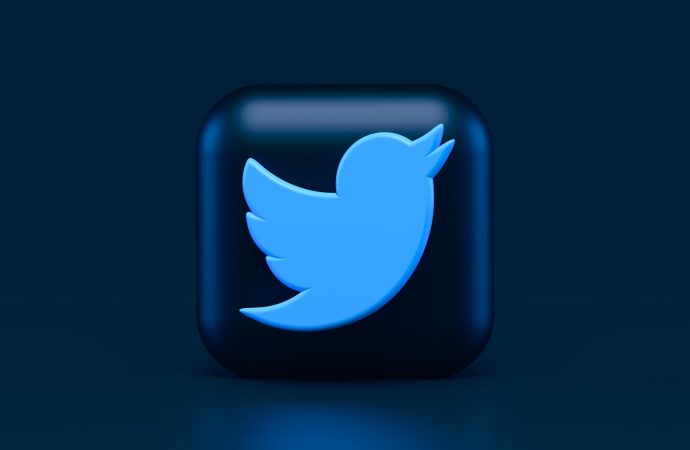In a clash that reverberated through the digital landscape, Disney found itself entangled in a Twitter feud with Florida Governor Ron DeSantis over the company’s advertising practices. The confrontation between the entertainment giant and the prominent political figure took center stage, drawing attention to the intersection of corporate influence, political messaging, and social media discourse.
In a clash that reverberated through the digital landscape, Disney found itself entangled in a Twitter feud with Florida Governor Ron DeSantis over the company’s advertising practices. The confrontation between the entertainment giant and the prominent political figure took center stage, drawing attention to the intersection of corporate influence, political messaging, and social media discourse. Join us as we delve into the details of this heated exchange and explore the broader implications it holds.
It all started innocuously enough when Disney launched a series of advertisements promoting its latest streaming offerings. The ads, carefully crafted to captivate audiences, highlighted the magic and nostalgia associated with Disney’s beloved characters and franchises. However, what followed was an unexpected turn of events as Governor Ron DeSantis took to Twitter to voice his discontent with Disney’s advertising approach.
DeSantis criticized Disney for what he perceived as a disregard for conservative values and accused the company of pushing a progressive agenda through its promotional materials. The Governor’s tweets quickly gained traction, resonating with his supporters and sparking a heated debate on social media.
Disney, known for its meticulous brand management, swiftly responded, defending its advertisements as inclusive and reflective of its diverse audience. The company stressed its commitment to creating content that resonates with people from all walks of life while adhering to its core values of storytelling and imagination.
The clash between Disney and DeSantis exemplifies the growing trend of corporations being drawn into the political arena. As brands increasingly express their social stances and align themselves with causes, they become targets of scrutiny and criticism from politicians and activists alike. In this case, Disney’s advertisements became a focal point for political contention, with both sides using the confrontation as a platform to assert their values and ideologies.
The power of social media in fueling such clashes cannot be underestimated. Twitter, with its instant reach and amplification capabilities, served as the battleground for this public exchange. Supporters and critics of both Disney and DeSantis flooded the platform, engaging in spirited debates and furthering the polarization that characterizes contemporary political discourse.
Beyond the immediate confrontation, this clash underscores the complex relationship between corporations and politics. As entities with significant economic influence, companies like Disney possess the ability to shape public opinion and sway cultural conversations. Their advertising choices can inadvertently become catalysts for political discord, as seen in this instance.
For Disney, the incident highlights the delicate balancing act it faces as a global entertainment conglomerate with diverse audiences and stakeholders. The company must navigate a highly polarized social and political landscape, striving to strike a chord with audiences while avoiding alienating any significant segments of its customer base. As brands increasingly wade into political waters, they must be prepared to address controversies and articulate their values in a manner that resonates with their audiences.
Governor Ron DeSantis, on the other hand, capitalized on the clash to rally his political base and reinforce his own conservative messaging. By seizing upon Disney’s advertisements as a symbol of progressive values, he sought to position himself as a defender of conservative principles. This exchange afforded him an opportunity to engage with his supporters and garner attention on a national scale.
The clash between Disney and DeSantis raises questions about the role and responsibility of corporations in the political realm. While companies have the right to express their values and align with causes they deem important, they must also consider the potential consequences of their actions. In an era marked by heightened political sensitivity, businesses face the challenge of navigating a divisive landscape without compromising their core mission and principles.
Furthermore, this incident serves as a reminder of the influence and impact of social media platforms on shaping public discourse. Twitter’s ability to elevate and amplify voices allows political figures to directly engage with corporations, putting pressure on them to respond and potentially altering public perception. The instantaneous nature of these exchanges can quickly capture the public’s attention, making them significant moments in the broader socio-political narrative.
In conclusion, the clash between Disney’s advertisements and Governor Ron DeSantis’s criticism on Twitter underscores the intersection of corporate influence, political messaging, and social media discourse. The incident highlights the challenges faced by companies as they navigate a politically charged landscape and strive to resonate with diverse audiences. It also emphasizes the influence of social media platforms in shaping public opinion and fueling political debates. As corporations continue to express their values and engage in societal discussions, these clashes are likely to become more frequent, further blurring the line between business and politics in the public sphere.

















Leave a Comment
Your email address will not be published. Required fields are marked with *